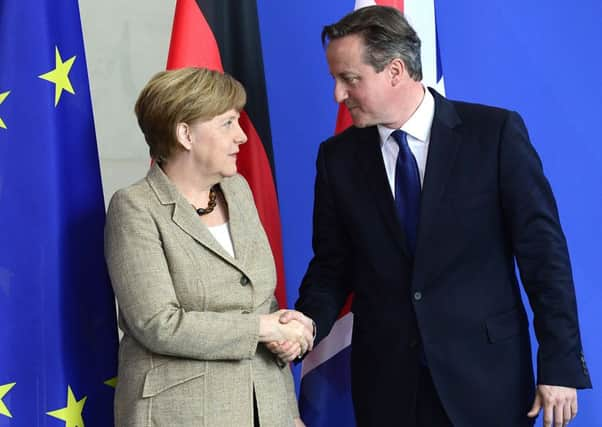Summing up: Slim chance of informed debate over EU


Aye, right. What will instead unfold is two years of obfuscation and bluster that will end in a monumental decision made amid misconceptions and confusion. It’s not as if we’re starting from a point of clarity. If the financial services sector collectively decides to build a dossier on the implications of EU regulations, it would need to get cracking. There’s a lot to digest. In fact, it would be virtually impossible.
As it happens, one development that could have a big impact on investors and pension savers is due to take effect a few months before the referendum.
Advertisement
Hide AdAdvertisement
Hide AdThe markets and financial instruments directive (Mifid) II isn’t a film sequel. On paper it is as turgid a slab of legislation as you could wish for. What might interest savers and investors, however, is why Mifid II is giving the big fund management firms such a headache. They have been allowed to get away for too long with keeping investors in the dark as to what they’re paying on their funds, including those that many people will rely on to finance their retirement.
The rhetoric has improved in recent years. Having for so long denied there was a problem, the funds industry finally acknowledges that there’s an issue with hidden costs and fees. Now they just insist that they can’t disclose the full costs because there’s no way of actually knowing them. Privately, however, many in industry admit that this simply isn’t true.
The Financial Conduct Authority is getting somewhere on this, slowly, but the UK remains behind much of Europe on getting a better deal for investors, with Sweden, Norway and the Netherlands all pushing harder for transparency.
That the message is gradually sinking in is due largely to Mifid II, which will (as it stands) require fund firms to disclose to investors all of the costs and fees they’re forking out for. That includes transaction costs, performance fees and other figures, in one aggregated number.
Mifid II could be the watershed moment when savers and investors in the UK can finally see what they’re actually paying for, assess value for money and make proper comparisons on that basis.
Because they can’t currently do this the odds are stacked in favour of the fund houses that continue to exploit them. Which takes us back to the EU referendum. If the UK were to cut all ties with Europe it would presumably no longer need to comply with Mifid and other such legislation.
This isn’t necessarily an argument in favour of the status quo. Examples of EU rules that have had a detrimental impact on your finances wouldn’t be hard to find. What it does underline is that EU measures can influence behaviour, for better or worse, indirectly and without even taking effect, creating enormous potential for dissembling in the EU referendum debate.
The chances of an informed, transparent conversation on the matter over the next two years are desperately slim.